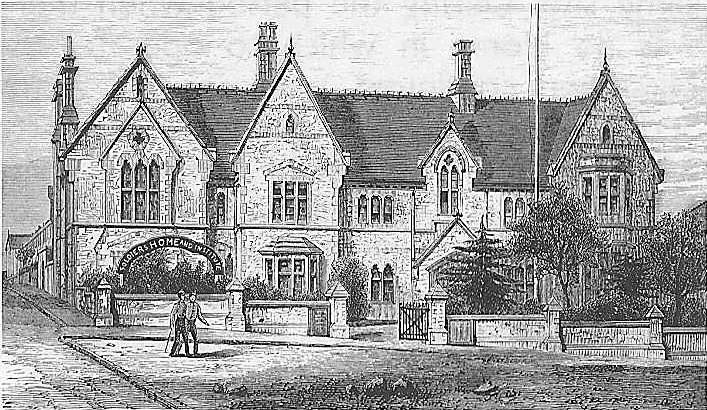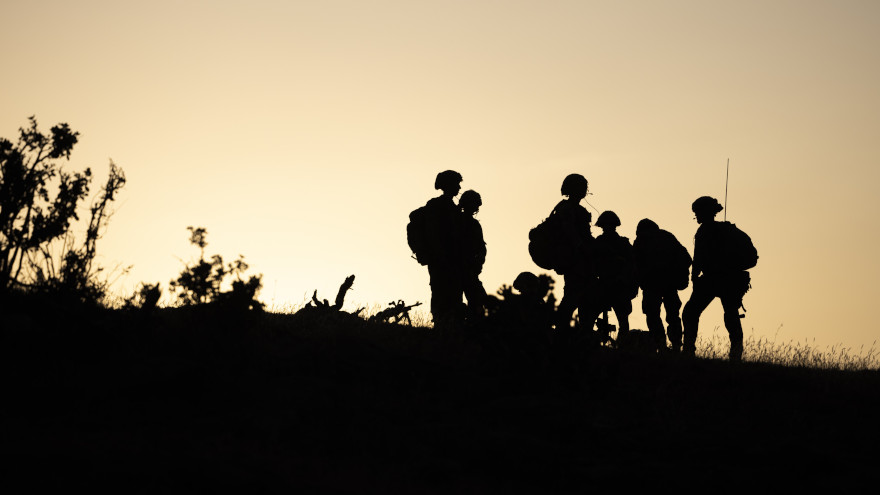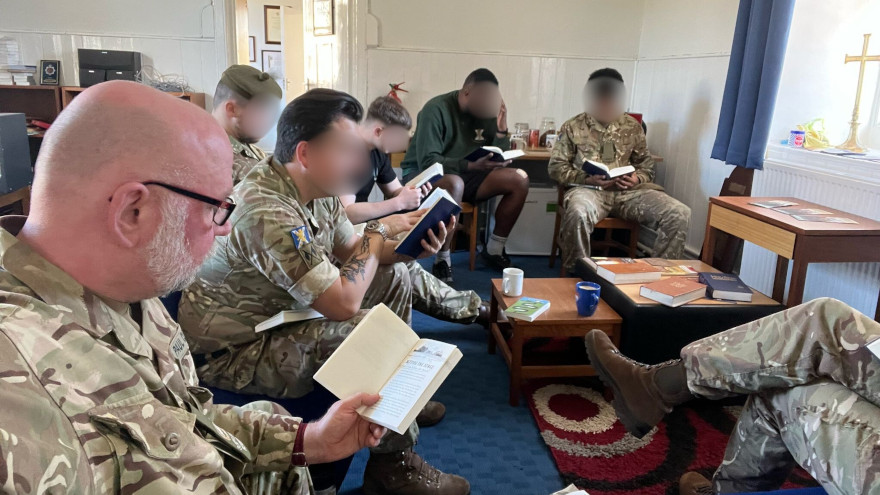To Queen, to country, but oh! Most to Thee, my life to give, who gav'st Thy life for me.
– Motto written in Mrs Daniell’s ‘Soldier’s Hymn Book’
The work of SASRA has been shaped by the work of hundreds of faithful servants of Christ who have gone before. This history is still relevant because of the legacy that continues today. A significant aspect of that history is the work of the Soldiers’ Homes. You can read about the work of Elise Sandes and Mary Fry in Part One.
Now, we look at the work of Miss Daniell’s Soldiers’ Homes.
In England, Mrs Louisa Daniell, the widow of Captain Frederick Daniell, was active in setting up village missions to combat the poverty she saw in rural villages of England. This work brought her into contact with the County Towns Missions Society, and it was the secretary of this organisation who encouraged Mrs Daniell to ‘adopt Aldershot’ in 1862 and to begin working with the soldiers stationed there.
Mrs Daniell agreed and in April 1862 – together with her daughter Georgiana – moved to Aldershot, a town which, at the time, was far off from being put on the list of ‘quaint English towns’. Mrs Daniell wrote that, ‘So much has been written of Aldershot that it is unnecessary for me to enter into the loathsome details of the unblushing vice, which tracks the everyday path of the poor soldier’.
She recorded that it was a town with many pubs, dancehalls and extreme prostitution. To contrast this, the rough town had one Presbyterian minister, two Roman Catholic priests and four Scripture Readers.
The first proceedings for the mother and daughter upon arrival were to rent a house and to fit it as a mission hall and reading room. But that was only the beginning; they began raising funds for the first purpose-built Soldiers’ Home. Something that would be exactly what they needed, that they could tailor to an exact purpose. Their aim was to, of course, reach soldiers with the gospel. But they also understood their home needed to be a place where soldiers wanted to be, a place to spend evenings away from the barracks, a ‘public house without the drink’, Georgiana stated. A place to feel at rest and at home. A plot of land in Aldershot was gifted for the work. Upon receiving it, Mrs Daniell records this:
‘Thank GOD!’ said I, taking his hand. It is not given to me, but to Him; and believe me, if there is one gift, in that fast oncoming day, of which you will never repent, it is the ground on which we are now standing. It is the Lord’s, and so far as human law can make it, shall be consecrated to His work for ever!
– Mrs Daniell

After many years of faithful dedication to the work, leading many soldiers to Christ and suffering from illness in her final years, Mrs Daniell went on to glory. Her daughter Georgiana continued the work – which was now named ‘Miss Daniell’s’ – until her death. She provided for both the spiritual and physical needs of soldiers, and by doing so, countless individuals came to know the Lord. The records her and her mother kept tell many testimonies of soldiers and make note that there were too many to number. Many more Soldiers’ Homes were built across the country, where the gospel was shared with thousands more soldiers.

The ‘Aldershot Mission Hall and Soldiers’ Home and Institute’ opened on the corner of Barrack Road and Edward Street on Sunday 11 October 1863. Although the original building was demolished in 1956, Havelock House (SASRA HQ) was erected on that spot and still stands for the Lord’s work today.
Today, only one Soldiers’ Home remains as a legacy of their faithful work, the Jackson Club in Gibraltar Barracks, Minley.
What was true for soldiers in the 1800s is, in many ways, true for soldiers today. Many are young, away from home for the first time, missing family they left or missing family they never had. They are in environments where it is easy to get drawn into bad company and bad habits. The military was (and is) a challenging environment to live for Christ. One soldier in a Highland regiment wrote to Mrs Daniell:
I think what had kept me back was the fear of man. I dared not kneel down. Then, one night, a Corporal of the Rifles spoke about soldiers being afraid to kneel down in their rooms. Ah! I felt that condemned me, and I must do it that night. I waited about ever so long, was very slow in taking off my clothes, and I didn't kneel till the lights were out. No one saw me but the man in the next bed, but everyone in the room knew it pretty soon, and by next day it was all over the depot, ‘So-and-so’s turned a blue light!’ The worst was the next night; generally there’s plenty of chatting when we’re getting to bed, but there wasn’t a word in the whole room then, while they were waiting to see me do it. But I’ve not much to complain of with comrades; the evil heart within is the worst.
Another said:
Quite accidentally, in the course of conversation one evening with some of the Christian men, the fact was mentioned that when they had been out on the manoeuvres, one of their number was kneeling down praying one morning, and a man took a great piece of wood and struck him on the head with it. Of course, pillows, boots, potatoes, coals and occasionally the contents of a can of water, are very ordinary missiles.
Places like Sandes and Miss Daniell’s Soldiers’ Homes provided a place to escape the temptations and difficulties that often come with military life as well as a place where the gospel was freely shared and God was glorified. To many, it was their home, the place they came to Christ or the place they grew in their Christian faith. The workers there, particularly Mrs and Miss Daniell were special to the hearts of many soldiers. When Louisa was near death, Georgiana received this letter from some of the men.

‘I have taken the liberty of addressing this to you, on behalf of my brother comrades and self, to thank you once more for all that has been done for us, and for the great interest taken by yourself, Miss Daniell, and the dear ladies at the Home. Our hearts are full of gratitude to the Giver of all good, and we trust by His grace to be enabled, by our present and future zeal in His cause, to testify that we are worthy of the great interest so kindly taken in us.’
They go on to tell of how they were continuing to share the gospel, inspired by her witness, with their fellow soldiers and they felt it ‘a great honour to be your representatives in such a noble and glorious work.’
As we look back on this wonderful work of the past, that caused an effect on unnumbered soldiers and families far and wide, we are also able to see how it continues to this day. The work among military personnel has never ceased, and it is still very much needed today.
Culture shifts, often causing certain needs to shift with it. But it remains a fact that there are many in the military who have not heard the gospel, and there are Christians ‘behind the wire’ who need prayer and support.
In Part Three, we will look at how the services once provided by many Soldiers’ Homes across the country have changed, but not ceased! We will also see how ministries like the Jackson Club and SASRA can meet these needs today.
PRAY WITH US

- Praise God for the thousands of soldiers and families who heard and accepted the good news of Jesus Christ through the work of Louisa and Georgiana Daniell.
- Give thanks for the Jackson Club, our one remaining Soldiers’ Home. Pray that this place would be more than just a café, a platform for the gospel.








